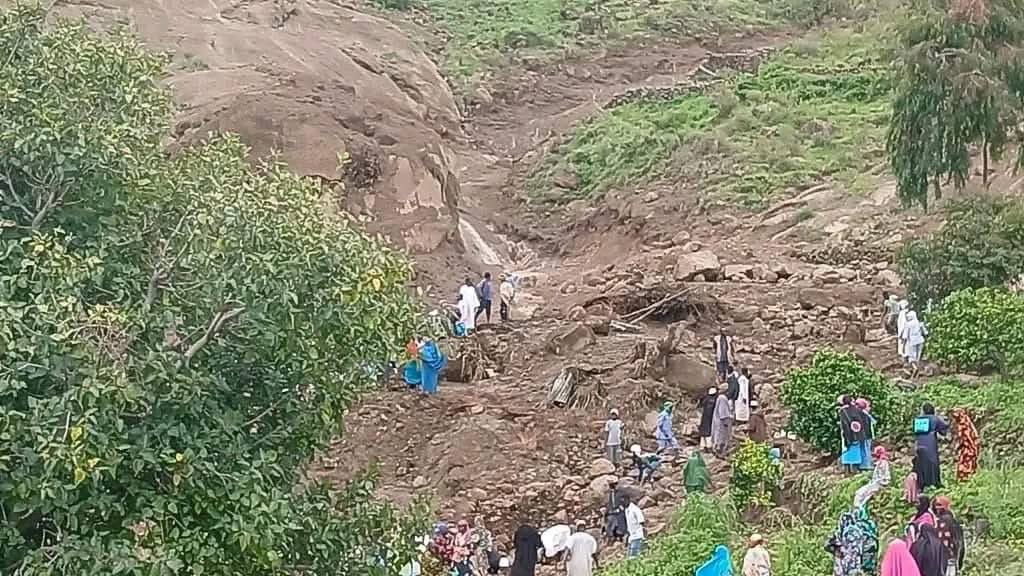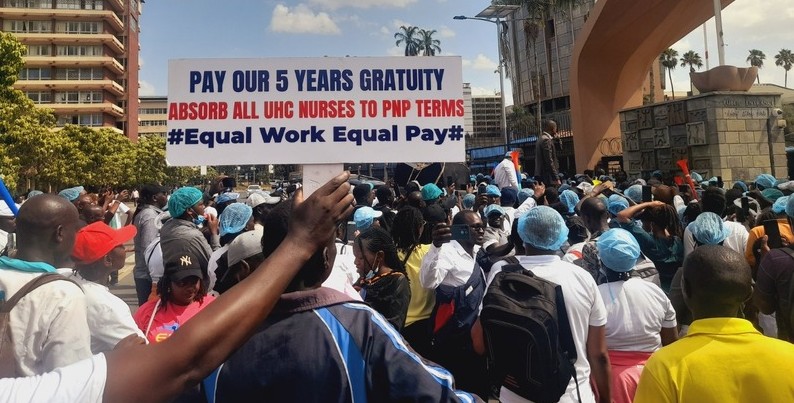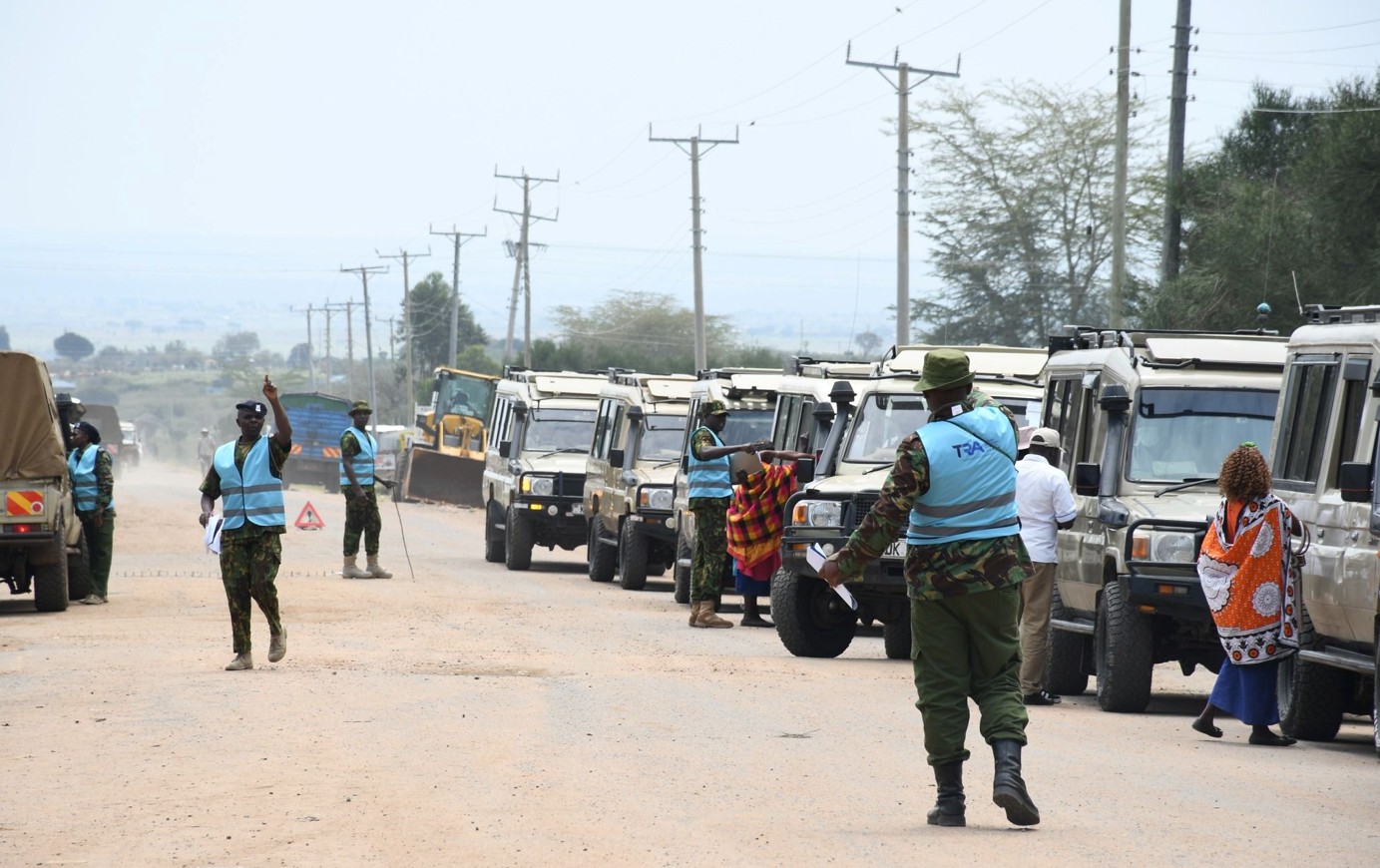Nakuru overtakes Kiambu to become Kenya’s second-largest county by GDP size

Nakuru now boasts a nominal Gross County Product (GCP) of Sh785.75 billion as of 2023, compared to Sh760.8 billion of Kiambu.
Just two years after being elevated into a City in 2021, Nakuru County is now the second largest county in Kenya by GDP size, a report has revealed.
Titled the 'Gross County Product 2024' by the Kenya National Bureau of Statistics (KNBS), the report shows the county has leapfrogged Kiambu to assume the position in 2023.
More To Read
- Sh208 billion unutilised as Kenya's development spending hits five-year low
- Development projects hit hard as counties, ministries struggle after Treasury withholds billions in approved funds
- Financial crisis looms for 26 counties as Controller of Budget rejects budgets citing irregularities
- Senators defend constitutional right to summon governors, hit back at Raila
- KNUT rejects Raila's proposal to devolve education
- Raila urges Parliament to grant automatic pensions for two-term governors
Notably, Kiambu has held the second position, after Nairobi County, for the past four years since the report's inaugural edition in 2019.
According to the report, Nakuru now boasts a nominal Gross County Product (GCP) of Sh785.75 billion as of 2023, compared to Sh760.8 billion of Kiambu.
Nominal GCP refers to a value or measurement that is expressed in current prices, without adjusting for inflation or changes in purchasing power.
Ideally, the GCP estimates highlight the counties' absolute contribution to the national Gross Domestic Product (GDP).
With the Sh785.75 billion, Nakuru now accounts for 5.7 per cent of the country's GDP, up from 4.9 per cent five years ago.
Kiambu on the other hand now accounts for 5.5 per cent, down from 5.6 per cent in the same period.
Nairobi County leads the charge with a GCP of Sh3.8 trillion, which accounts for 27.4 per cent of the national GDP.
Mombasa, Meru, Machakos, Uasin Gishu and Kisumu Counties rank from position four to eight, respectively in terms of nominal GCP.
Gross Value Added
Over the past five years, Nairobi City contributed a notably large share of the total Gross Value Added (GVA), at 27.5 per cent.
"Kiambu, Nakuru and Mombasa also have substantial contributions, accounting for 5.6, 5.2 and 4.8 per cent, respectively," reads the report.
GVA refers to an economic metric that represents the value of goods and services produced in a particular area, industry, or sector, minus the cost of inputs and raw materials used in production.
However, a total of 33 counties, contributed less than 2.0 per cent of the overall GVA.
Nevertheless, the report notes that during the five-year period (2019-2023), 16 out of 47 counties recorded a higher growth rate than the national average GDP growth of 4.6 per cent.
The top five counties in terms of economic growth are Marsabit (9.3%), Tana River (7.6%), Nakuru (6.9%), Kajiado (6.3%), and Nairobi City (6.1%).
Five counties recorded growth rates below 3.0 per cent, with three of these registering growth rates of less than 2.0 per cent.
Counties of Meru, Nakuru, Nyandarua, Murang'a and Kiambu recorded the highest performance in agricultural production, majorly due to their diverse crop production.
These counties are high producers of tea, coffee, maize, vegetables, potatoes and raw milk.
In the manufacturing sector, Nairobi City was the largest contributor, recording an average of 36.9 per cent of total manufacturing GVA.
Other notable contributors include Mombasa (9.9%), Kiambu (8.4%) and Machakos (7.8%).
In the service sector, Nairobi City remained the highest contributor, accounting for 37.4 per cent of the total services' GVA.
Top Stories Today













































